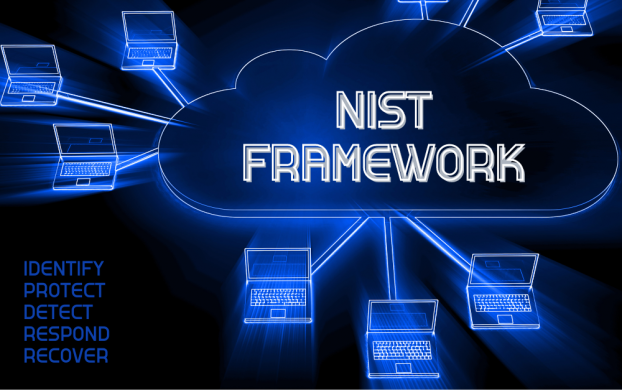The NIST Cybersecurity Framework (CSF) is a valuable guide engineered to help your business effectively manage cybersecurity risks. If you’re seeking a flexible and cost-effective way to enhance your defenses against cyber threats, this framework provides excellent guidelines and supports compliance with cyber insurance requirements.
For your leadership, NIST CSF compliance offers substantial benefits. It helps your team identify and manage risks, strengthens defenses, reduces breach likelihood, and ensures regulatory compliance, all of which build trust with stakeholders. The framework also establishes clear incident response protocols to minimize downtime and aligns cybersecurity strategies with business goals, fostering a culture of security.
Industries Most Impacted by NIST CSF:
- Healthcare: Safeguarding patient data and complying with HIPAA.
- Finance: Protecting sensitive financial data and adhering to GLBA and PCI DSS.
- Energy and Utilities: Ensuring robust cybersecurity for critical infrastructure.
- Government: Safeguarding national security.
- Manufacturing: Addressing risks from automation and IoT.
- Retail: Protecting customer payment information.
- Telecommunications: Defending against communication disruptions.
- Education: Managing data breaches involving student records.
Key Components of the NIST Cybersecurity Framework
Core Functions
-
- Identify: Assess risks and environment.
- Protect: Implement safeguards.
- Detect: Identify incidents quickly.
- Respond: Act to minimize impact.
- Recover: Restore services post-incident.
Implementation Tiers
Ranging from Partial to Adaptive, indicating maturity in adopting the framework.
Profile
Align functions with your business needs and risk tolerance.
Steps for NIST CSF Compliance
- Conduct regular risk assessments.
- Update policies to address supply chain and privacy.
- Enhance collaboration between cybersecurity and privacy teams.
- Implement supply chain risk management.
- Focus on incident response and recovery planning.
- Educate employees on the updated framework.
- Monitor progress using the framework’s tiers.
Recent Updates to the NIST Framework
The September 2023 updates to the NIST Cybersecurity Framework (CSF) introduce several key enhancements aimed at strengthening organizational security. Notably, there is a greater emphasis on supply chain risk management, reflecting the need to assess risks posed by third-party suppliers. The framework now better integrates with international standards such as ISO/IEC, ensuring a more cohesive approach to cybersecurity.
Additionally, privacy considerations have been highlighted, underscoring their importance in overall cybersecurity strategies. The updates also stress the need for resilience in recovery and continuity planning, allowing organizations to effectively respond to incidents. Lastly, the implementation tiers have been clarified, providing organizations with a clearer understanding of their cybersecurity maturity and areas for improvement.
Get Expert Guidance
Even for a sophisticated, well-staffed IT team, compliance is complicated and time consuming. My Resource Partners can help your team navigate NIST CSF compliance with ease. Take advantage of our FREE Cybersecurity Assessment. Our experts will evaluate your current infrastructure, identify areas for improvement, and determine if your cybersecurity tools align with your needs. After the assessment, we can connect you with the right cybersecurity providers to ensure compliance effectively.
Get a NIST CSF Check Up
Click Here to Schedule Your FREE Cybersecurity Assessment


